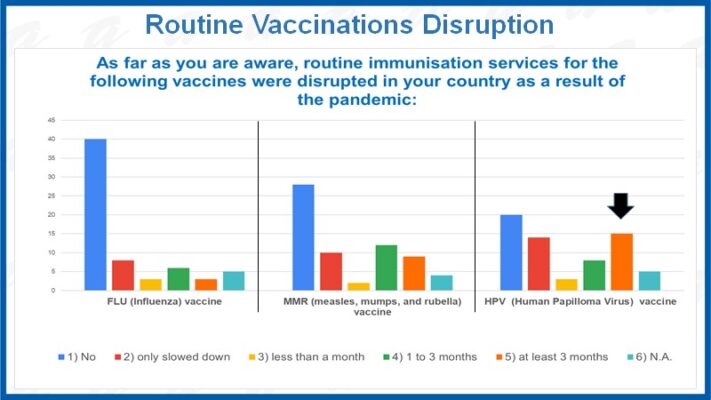Let’s take the liberty of putting the current COVID-19 vaccination campaigns in the background for a moment, allowing us to focus on so-called ‘routine vaccination’. Immunisation against measles, influenza, human papillomavirus (HPV), pneumococcal disease and several other illnesses are of enormous value. Neglecting these vaccine-preventable diseases would, in the long run, have potentially devastating effects.
This was evident last year with the closure of vaccination centres where some citizens were advised that immunisation services had been suspended indefinitely. The message was: ‘Come back later…I can’t tell you when’.

To understand the impact of disruption to routine immunisation during the worst of the COVID-19 pandemic, the Active Citizenship Network – EU branch of the Italian NGO Cittadinanzattiva – launched the #VaccinAction2021 project. This initiative brought stakeholders together to develop a survey and conduct virtual focus groups to see what lessons we can learn from the unprecedented period we have lived through.
Our goal was not to collect statistical data on missed vaccines or cases of vaccine-preventable diseases. The mission was to engage with patients and citizen advocates, healthcare professionals and representatives of health institutions to explore their experience during the period from December 2020 to May 2021 at a time when routine immunisation and COVID-19 vaccination programmes were running simultaneously.
We focused in particular on influenza, MMR (measles, mumps and rubella) and HPV vaccines. A total of 65 detailed responses were collected from 21 countries, primarily from Belgium, France, Hungary, Ireland, Italy, Malta, Portugal, Romania and Spain. Answers were also received from Croatia, Germany, Finland, Austria, Bulgaria, the UK, the Netherlands, Poland and Slovenia.

Survey results
In terms of disruption to routine immunisation, we found no major impact on flu vaccination. However, the situation was different for MMR and HPV, with the latter particularly strongly affected. For the most part, respondents said national and local governments – along with citizen’s fear of COVID-19 infection – were to blame for disruption to routine vaccination.
Similarly, when asked about access to vaccination, along with media attention, flu vaccination was largely unaffected while HPV vaccination suffered most. Respondents suggested improved communication and the expansion of vaccination channels.

We also found strong support for digitalization, including the development of national immunisation registers and unique patient ID numbers where they are not already in place. Education and empowerment of healthcare professionals (HCPs) was also proposed, with HCPs given a more proactive role in communicating with unvaccinated individuals.
When it comes to communication, respondents gave a broadly positive rating to the sharing of information on flu by health professionals, civil society organisations, national agencies and the media. Again, HPV was viewed as a distant third in terms of efforts to communicate about the vaccine and the diseases it prevents.
Respondents called for HCPs to be given the tools, time and money to proactively engage with the public on these issues – ideally, through multi-stakeholder collaboration – while health literacy in schools should be prioritized.

Playing catch-up
Now is the time to get back on track by ensuring that citizens who missed out on vaccines during the initial COVID-19 immunisation programme benefit from catch-up programmes. We cannot afford to have vulnerable groups of people who, through no fault of their own, are exposed to the risks associated with measles or HPV-related cancers.
Instead, we hope the positive legacy of the pandemic vaccination programme will be to build on the experiences and awareness developed over the past year. By continuing to mobilise HCPs, working with civil society groups, scaling up information systems and boosting communication, policymakers can ensure that routine immunisation programmes emerge stronger from this crisis.
The next chapter in this project will feature a second survey and online focus group. Check our project website for more.
Daniela Quaggia is a Senior Manager at the Active Citizenship Network



